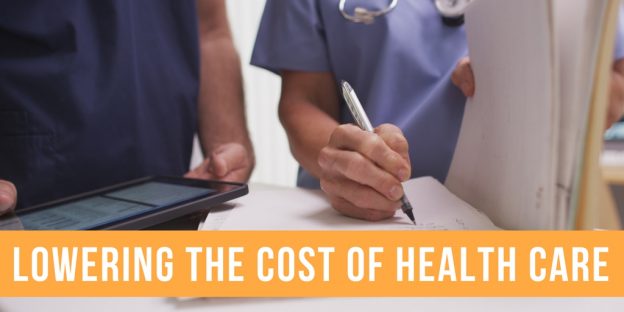What is it?
By definition, a crisis is a turning point, a time when you have to make crucial decisions (often suddenly) that will affect your future. Although smart planning is the key to effectively dealing with periods of crisis, you may find yourself suddenly dealing with an unexpected event that you didn’t prepare for, and you wonder what to do next. Whether you’re planning ahead or dealing with a crisis now, take control. There’s no escaping the fact that a crisis is a life-changing event, but how you handle a crisis will, in part, determine whether your life changes for the better or for the worse.
Planning for a future crisis
Identify and manage risk
What future crises are you likely to face? While you hope that the answer to this question is none, that’s an overly optimistic thought. It’s almost inevitable that you will face one crisis or more during your lifetime. While you can’t have a plan to deal with all possible risks, you can plan for events that seem likely and for some events that may seem unlikely. You should, for instance, plan for events such as death, illness, and job loss. You may not, however, have to plan for crisis risks that are unlikely to affect you, such as divorce (if you are single or happily married), or natural disaster (if you live in a non-disaster prone area). Knowing that you have some plan will help you deal with a crisis if you ever do confront one.
Example(s): Jane and Hal built a beach house in Malibu. Their home was swept away in a mudslide, and they spent months replacing their personal possessions, as well as getting duplicates of their birth certificates, insurance policies, and other personal and financial records. Five years later after they had rebuilt their house, a fire swept through town, and their house was destroyed. Fortunately, this time they were ready. They had kept their important records and financial information in a safety deposit box, and had sent boxes of photos to Jane’s mother for safekeeping.
Plan for contingencies
Any plan you make for dealing with a future crisis should be flexible. Part of the stress you feel when confronting a crisis is because crises are unexpected and unpredictable. You won’t know ahead of time how you’ll react and exactly what you’ll have to confront. One good approach is to plan for a worst-case scenario. For instance, if you plan for a period of unemployment that lasts for two months, what will you do if it stretches for six months? If you plan around a six-month period of unemployment, however, you’ll know what to do if it only lasts for two months.
Organize your records
A key component of planning for a crisis is organizing your records and personal papers. This is particularly true if you become sick, incapacitated or die and your loved ones have to assume responsibility for your finances. You will also be able to readily access vital information instead of wasting time and energy trying to find it. At the very least, you’ll want to set up a filing system and give a list of your important documents and advisors to a trusted friend for safekeeping.
Plan your finances
Unless you have significant liquid assets, planning for a crisis means, in large part, planning your finances. Many financial professionals advise their clients to keep an emergency fund equal to at least three months worth of expenses, just in case your income flow stops or your expenses increase. This emergency fund can make a big difference because many things can change in three months. If you don’t have the emergency fund, however, you may have to make hasty decisions regarding your future, such as taking a new job you don’t really want, selling prized personal possessions, or dipping into your college or retirement fund. You should also work up a bare-bones budget that reflects only your basic living expenses. Cut out all luxuries, and determine the least amount of income you need to survive.
Quantify your plan
When you plan for a future crisis, don’t be too general. Instead, be as specific as possible and write down your options. This way, you’ll be less tempted to avoid decisions by thinking you’ll deal with that when the time comes, and you’ll have something concrete to refer to if you must deal with a crisis situation. You’ll feel calmer, too, when you’re facing the crisis. People who live in areas prone to natural disasters often keep emergency kits in their cars or homes in case they need to evacuate in a hurry–a good example of this principle.
Dealing with an immediate crisis
Act, don’t react
Often when facing an immediate crisis, you want to do something, just about anything to solve the crisis, or you want to run away. While both responses are natural, neither is helpful. While you definitely need to do something in a crisis situation besides hide your head in the sand, you shouldn’t do just anything. In fact, it may even be preferable to take no action for a few days to let your emotions cool a bit. Then, act, but don’t react. To the extent possible, collect information and advice and formulate a plan. You may have only hours or days to do this, but some plan is better than none. If you feel that you can’t keep your emotions separate from your actions, ask a friend, relative, or professional to help you sort through your options.
Make a list of things that you need to do
When you have to plan in a hurry, the easiest way is to make a simple list of things you have to do. List as many items as possible. Then, as you do them, you can check them off. This is important because when you’re under stress, you may forget to do important tasks. In addition, a list will help you remember to focus on action, not reaction.
Find help
No one should have to weather a crisis alone. Even if you’re alone in the world or if you don’t want to burden your loved ones with details, there are community resources and individuals (paid and unpaid) who can give you general and specific advice.
Dealing with illness or disability
Harness your emotions
If you find out that you, or someone close to you is sick, hurt, or dying, you’ll probably feel numb, scared, angry, sad, anxious, or even panicked. It’s likely that your initial feelings will change, but you may never accept your situation. You don’t necessarily have to accept illness and its consequences to deal with it, however, and you can control how you react to it. In fact, some people need to feel in control of everything when they become sick because they are unable to control their disease. Remember that this need for control is common, and it can be positive if you use your energy to make unemotional decisions that will affect you and your loved ones.
Find support
When you’re sick or hurt or caring for someone else who is, it’s vital to have a support network. Hopefully, you have close friends and relatives that will help you. But many people don’t come forward to help and even well-intentioned friends and relatives may not give you as much help as you need. Fortunately, there are many community resources available to help you.
Find a way to pay your bills
Paying your bills when you’re sick can be hard because you can’t work at all or perhaps can work only part-time. If you own your own disability insurance policy, check your coverage and contact your insurance company for claims information. Your employer may have group disability insurance that you aren’t aware of that will help you. If you were hurt or became sick from job-related causes, you may be able to collect benefits from workers’ compensation. If your disability is expected to last a year or more (or even result in your death), you may be eligible for Social Security disability benefits. But if you have no hope of receiving disability insurance benefits, you’ll have to cut your expenses and rely on your savings or spousal income. If you have limited income, you may be able to qualify for Supplemental Security Income (SSI) benefits or other government programs.
Determine how the illness will affect your job
If you work and become sick or get hurt, or if you have to care for someone else who is ill, you’re probably worried about how you’re going to keep your job. First, talk to your employer about what benefits you are entitled to in the event you are disabled. Your employer may be used to dealing with situations like yours and may have programs in place that you don’t know about. Next, be aware that if you work for a company that employs 50 or more people, you may be entitled to take up to 12 weeks unpaid leave under the Family and Medical Leave Act of 1993 if you need time off to recuperate or to care for someone else.
Example(s): When her mother was seriously injured in a car crash, Marcy wanted to fly to Dallas to take care of her. Because of the Family and Medical Leave Act of 1993, Marcy was able to take eight weeks of unpaid leave from her job, and she was restored to her former position at the same level of pay and benefits when she returned to work.
Plan for the future
Planning for the future is vital. When you’re sick, you suddenly realize the limits of your own mortality and your priorities may become clearer. It’s a good idea at this point to set new priorities and goals for the future. If you’re terminally ill, this step is critical. You may also need to quickly revise your financial and estate plans. Even if you expect to recover from your illness, you’ll benefit from reviewing your insurance coverage and your financial plans and by applying lessons learned from your illness to planning for the future.
Dealing with unemployment
Deal with your emotions
When you lose your job (unless you’ve quit), you’re usually angry and discouraged. It’s natural if your self-esteem is ebbing, and you may be tempted to run away from your problem instead of facing it. You may be tempted to make a drastic career change, start your own business, or continue your education. Although doing one of these things may be right for you, be careful. You may be reacting emotionally rather than logically. Following your dream can be wonderful, but it can also be a way to escape from the crisis that confronts you. Check out your options carefully, and don’t forget that finding a new job is one of them.
When Lou was 53, he was laid off from the automobile manufacturing plant where he had worked for 18 years. A month later while still depressed, Lou decided to take his life savings and invest in his dream. Six months later he opened Lou’s Lakeside Restaurant. Unfortunately, Lou’s restaurant failed because he hadn’t taken the time he needed to plan his business or to learn about running a restaurant. He lost all his money.
Find support
If you’re married, you may be tempted to rely upon your spouse for support, and he or she is probably happy to give it to you. Remember, though, the most loving spouse in the world can’t solve all your problems and is probably more anxious over your job loss than you realize. Share your burden with your friends, a support group, a career counselor, or a financial professional.
Find a way to pay your bills
If you’ve lost your job through a layoff or because you were fired, immediately contact your state’s unemployment office. You may be able to apply by phone or by mail, and you may receive benefits quickly once your application is verified. You’ll also need to find ways to cut expenses or increase your income. If you know that you are losing your job a few weeks or months before it happens, you’ll have time to restructure your debt, take a part-time job to fund your future unemployment, or borrow against your savings, home, or investments. If your job loss is sudden, however, you may need to rely upon your savings and find ways to reduce your payments on bills.
Find a new job
One of the first things on your mind when you lose your job is finding another one. You may be surprised at how difficult this is, particularly if you’ve worked at the same job for a long time. If you’ve dealt with unemployment before, you probably know the drill: update your resume, check the want ads, begin to network, etc. Even if you’re an experienced job seeker, there are resources that can help you.
Dealing with the death of a family member
When your spouse or a family member has died, you may need to plan the funeral, organize your finances, and claim life insurance benefits. You may need to serve as executor of your loved one’s estate, and you may need to be familiar with estate settlement procedures.















